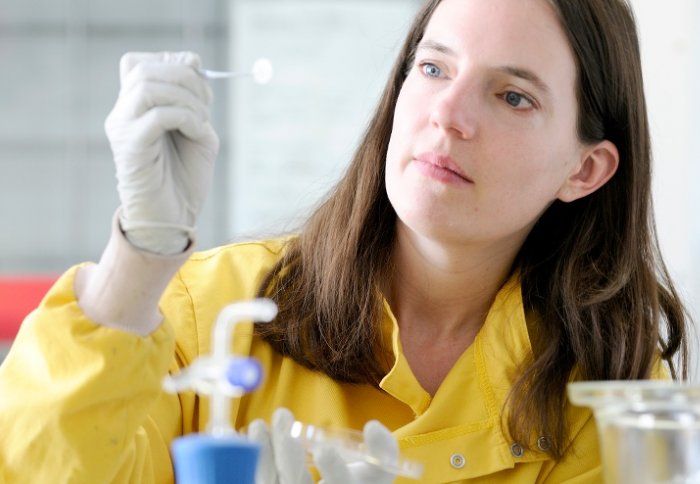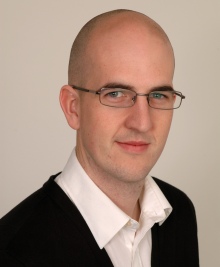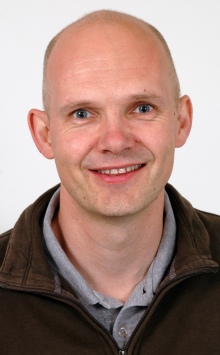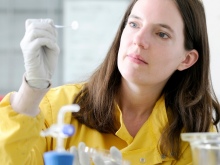Five Imperial academics win Royal Society of Chemistry awards

Five Imperial chemists have been awarded Royal Society of Chemistry Prizes in recognition of the advancements they have made in chemical sciences.
The Royal Society of Chemistry (RSC) prizes and awards recognise chemical scientists who have made an outstanding contribution in academia, research, business industry or education. Winners are rewarded for their true excellence in shaping the future of the field.
Of the 60 prizes and awards announced this month, five have gone to chemical scientists working at Imperial College London. Dr Matthew Fuchter is this year’s Harrison-Meldola Memorial Prize Winner, Professor Iain McCulloch has been named the Tilden Prize winner, Professor Milo Shaffer and Professor Molly Stevens have received the Corday-Morgan Prize, and Dr Edward Tate has received the Norman Heatley Award.
Dr Matthew Fuchter - RSC Harrison-Meldola Memorial Prize winner
 Dr Matthew Fuchter is a Senior Lecturer in Synthetic and Medicinal Chemistry in the Department of Chemistry. He designs new molecules for use in medicine and materials. Most recently his group have discovered a new means to eradicate malaria infections by rapidly killing the blood-borne Plasmodium parasites that cause the disease.
Dr Matthew Fuchter is a Senior Lecturer in Synthetic and Medicinal Chemistry in the Department of Chemistry. He designs new molecules for use in medicine and materials. Most recently his group have discovered a new means to eradicate malaria infections by rapidly killing the blood-borne Plasmodium parasites that cause the disease.
Dr Fuchter said: "I am absolutely thrilled to have received the 2014 Harrison-Meldola Memorial Prize. I hope to use the associated lectureships to highlight my group's recent exciting and collaborative work concerning function-orientated synthesis."
Professor Iain McCulloch – RSC Tilden Prize winner
 Iain McCulloch is Professor of Polymer Materials in the Department of Chemistry. His research focuses on low cost, sustainable energy - a key global environmental challenge. Solar energy is an important potential solution to this challenge, but new materials are required in order for this technology to compete with fossil fuels.
Iain McCulloch is Professor of Polymer Materials in the Department of Chemistry. His research focuses on low cost, sustainable energy - a key global environmental challenge. Solar energy is an important potential solution to this challenge, but new materials are required in order for this technology to compete with fossil fuels.
Professor McCulloch’s group is currently working towards developing cheaper plastics, to create solar panels with much larger areas that are more efficient and more stable under harsh environmental conditions.
Professor Milo Shaffer – RSC Corday-Morgan Prize winner
 Milo Shaffer is Professor of Materials Chemistry in the Department of Chemistry. His prize is awarded for the most meritorious contributions to chemistry.
Milo Shaffer is Professor of Materials Chemistry in the Department of Chemistry. His prize is awarded for the most meritorious contributions to chemistry.
Professor Shaffer works on developing transformative new nanocarbon chemistry and applications that can be applied at a practical scale. For example, his research group is currently working on a type of fibre composite found in a tennis racket and A380 jumbo jet to develop new reinforcements that both improve mechanical performance and introduce additional functions.
Professor Molly Stevens – RSC Corday Morgan Prize winner
 Molly Stevens is currently Professor of Biomedical Materials and Regenerative Medicine in the Institute of Biomedical Engineering at Imperial College. Her prize is awarded for the most meritorious contributions to chemistry.
Molly Stevens is currently Professor of Biomedical Materials and Regenerative Medicine in the Institute of Biomedical Engineering at Imperial College. Her prize is awarded for the most meritorious contributions to chemistry.
Professor Stevens’ group multidisciplinary group is focused on both high-quality fundamental science and translating science into improvements to human health. Her research in regenerative medicine focuses on developing new materials that take inspiration from biology, including designing novel bioactive scaffolds and new approaches towards tissue regeneration. She has developed novel approaches to tissue engineering that are likely to prove very powerful in the engineering large quantities of human mature bone for transplantation, as well as other vital organs such as the liver and pancreas.
Professor Stevens said: "Winning this award is a real honour and the credit goes in full to the team of fantastic students and postdocs that enable all the research that our group does."
Dr Edward Tate - RSC Norman Heatley Award
 Dr Edward Tate is Reader of Chemical Biology in the Department of Chemistry. His award recognises and promotes the importance of multi-disciplinary research between chemistry and the life sciences through independent work.
Dr Edward Tate is Reader of Chemical Biology in the Department of Chemistry. His award recognises and promotes the importance of multi-disciplinary research between chemistry and the life sciences through independent work.
Dr Tate develops and applies novel chemistry-based technologies that can help us to understand more about how cells, animals and plants function at the molecular level. One area that his lab specialises in is identifying and validating drug targets in disease, work that goes hand-in-hand with the discovery and development of new drugs for malaria, cancer, antibiotic resistant infections, and heart disease.
Dr Tate said: "I have been fortunate to work with many amazingly talented research students and postdoctoral researchers, and enjoyed highly productive collaborations with outstanding scientists at Imperial, across the UK, and internationally. The Norman Heatley Award is fantastic recognition for the members of my group, past and present, who have contributed their great ideas and infectious enthusiasm to advance our research in chemical biology, particularly in chemical proteomics and drug target validation."
Article text (excluding photos or graphics) © Imperial College London.
Photos and graphics subject to third party copyright used with permission or © Imperial College London.
Reporter
Press Office
Communications and Public Affairs
- Email: press.office@imperial.ac.uk
